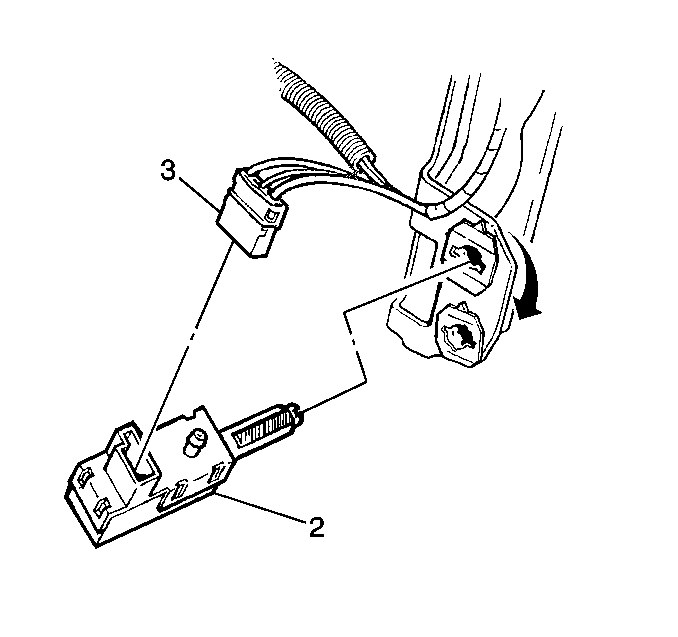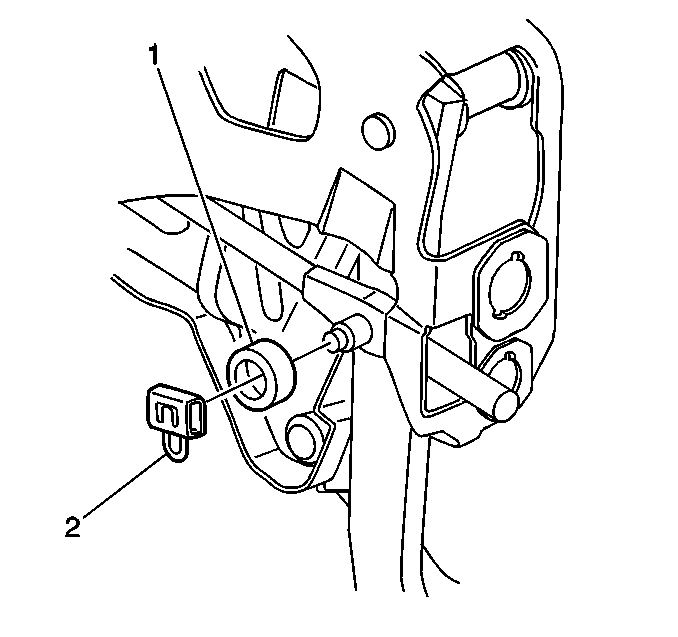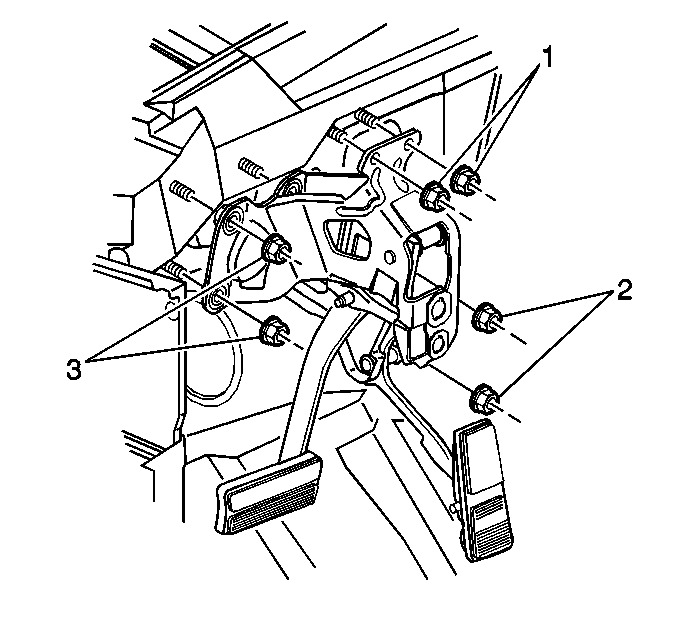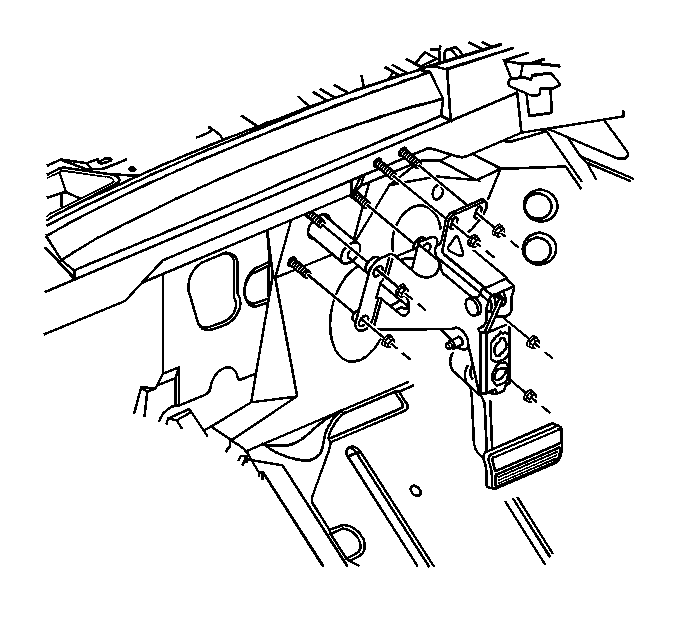Brake Pedal Replacement L.H.D.
Removal Procedure
- Remove the IP assembly. Refer to Instrument Cluster Replacement in Instrument Panel, Gauges and Console.
- Disconnect the electrical connectors (3) from the stoplamp switches (2).
- Remove the stoplamp switches. Refer to Stop Lamp Switch Replacement .
- Remove the brake pedal pushrod retainer (2).
- Remove the washer (1) from the brake pedal clevis pin.
- Remove the brake pedal nuts from the cowl (1).
- Remove the brake pedal nuts from the booster studs (2) and (3).
- Remove the brake pedal assembly.



Installation Procedure
Notice: Use the correct fastener in the correct location. Replacement fasteners must be the correct part number for that application. Fasteners requiring replacement or fasteners requiring the use of thread locking compound or sealant are identified in the service procedure. Do not use paints, lubricants, or corrosion inhibitors on fasteners or fastener joint surfaces unless specified. These coatings affect fastener torque and joint clamping force and may damage the fastener. Use the correct tightening sequence and specifications when installing fasteners in order to avoid damage to parts and systems.
- Install the brake pedal assembly onto the booster studs.
- Install the booster stud nuts (2) and (3).
- Install the brake pedal nuts onto the cowl studs (1).
- Apply lubricant, GM P/N 9985164 or equivalent, to brake pedal clevis pin.
- Install the vacuum booster pushrod onto the brake pedal clevis pin.
- Install the spacer (1).
- Install the retainer clip (2).
- Install the brake stoplamp switches. Refer to Stop Lamp Switch Replacement .
- Connect the electrical connectors (3) to the stoplamp switches (2).
- Install the IP assembly. Refer to Instrument Cluster Replacement in Instrument Panel, Gauges and Console.

Tighten
Tighten the brake pedal to booster stud nuts to 30 N·m
(22 lb ft).
Tighten
Tighten the cowl stud fasteners to 16 N·m (12 lb ft).


Brake Pedal Replacement R.H.D.
Removal Procedure
- Remove the I/P assembly. Refer to Instrument Cluster Replacement in Instrument Panel, Gauges and Console.
- Disconnect the electrical connectors (3) from the stoplamp switches (2).
- Remove the stoplamp switches. Refer to Stop Lamp Switch Replacement .
- Remove the pushrod retainer (2) from the pushrod pin.
- Remove the washer (1) from the pushrod pin.
- Remove the brake pedal nuts from the cowl.
- Remove the brake pedal fasteners from the booster studs.
- Remove the pedal assembly.



Installation Procedure
- Install the brake pedal assembly onto the booster studs then install the booster stud nuts.
- Install the brake pedal nuts onto the cowl studs.
- Apply lubricant, GM P/N 9985164 or equivalent, to pushrod pin.
- Install pushrod onto the pushrod pin.
- Install the pushrod spacer (1).
- Install the pushrod retainer (2).
- Install stoplamp switches. Refer to Stop Lamp Switch Replacement .
- Connect the electrical connectors (3) to the stoplamp switches (2).
- Install the I/P assembly. Refer to Instrument Cluster Replacement in Instrument Panel, Gauges and Console.

Notice: Use the correct fastener in the correct location. Replacement fasteners must be the correct part number for that application. Fasteners requiring replacement or fasteners requiring the use of thread locking compound or sealant are identified in the service procedure. Do not use paints, lubricants, or corrosion inhibitors on fasteners or fastener joint surfaces unless specified. These coatings affect fastener torque and joint clamping force and may damage the fastener. Use the correct tightening sequence and specifications when installing fasteners in order to avoid damage to parts and systems.
Tighten
Tighten the brake pedal to booster stud nuts to 16 N·m (12 lb ft).
Tighten
Tighten the cowl stud fasteners to 33 N·m (24 lb ft).


